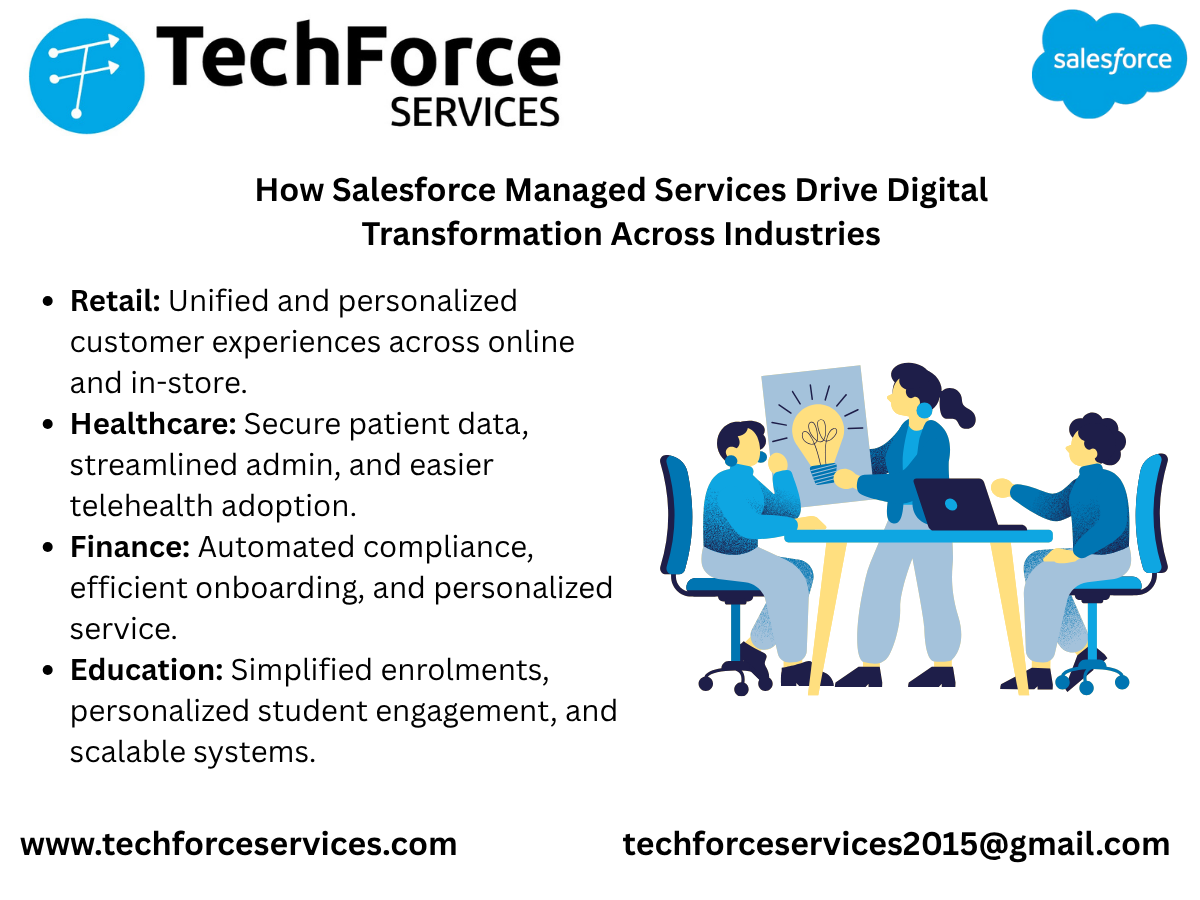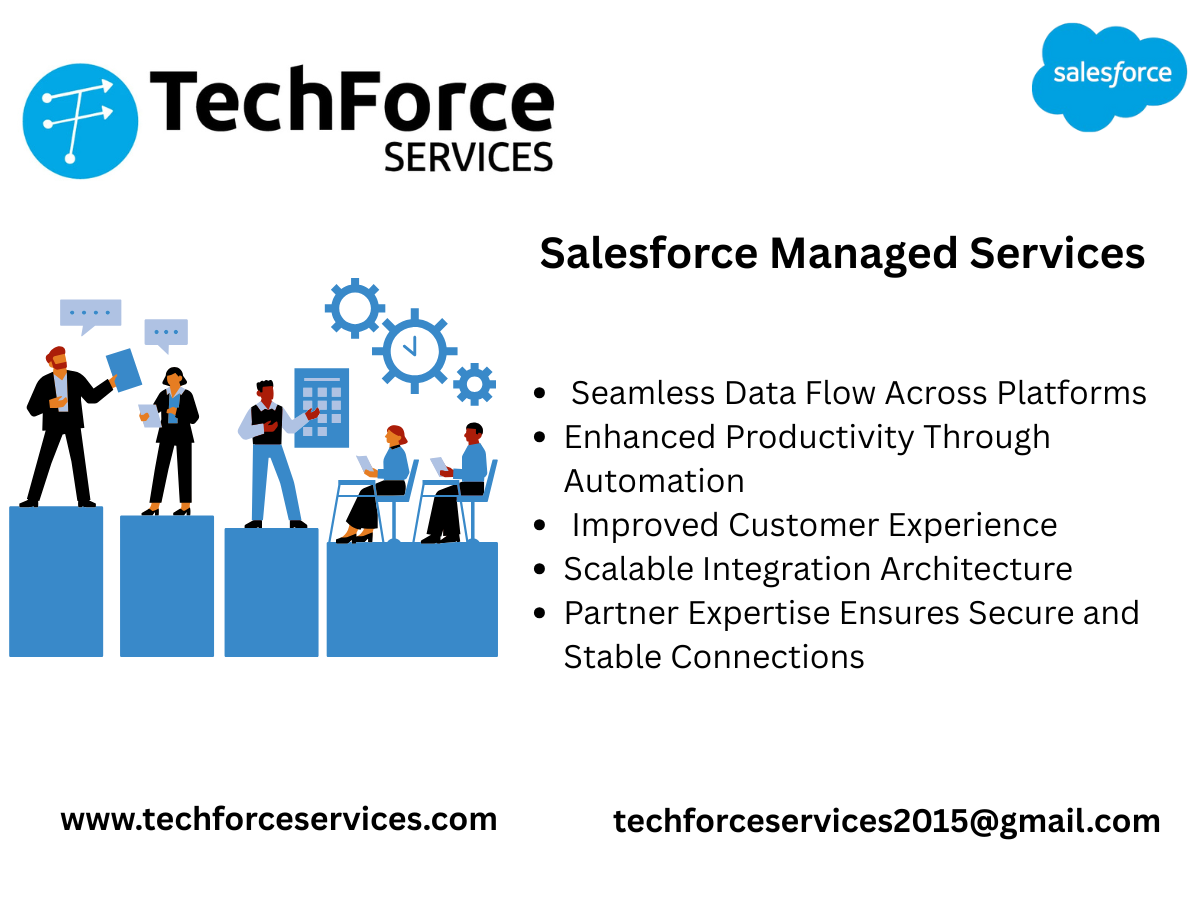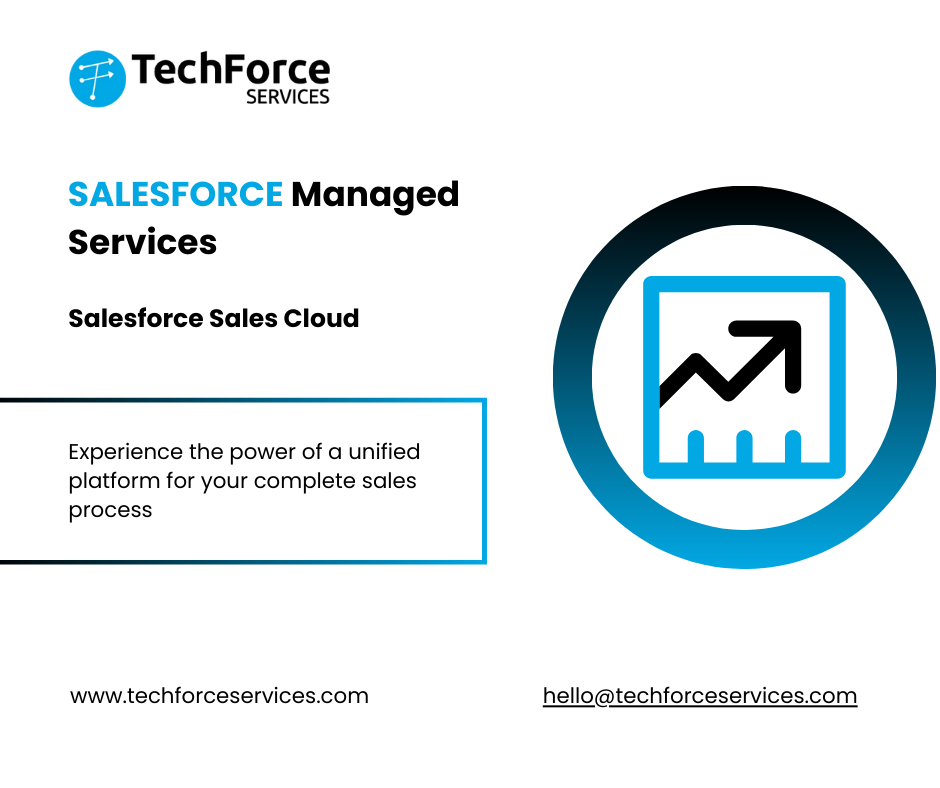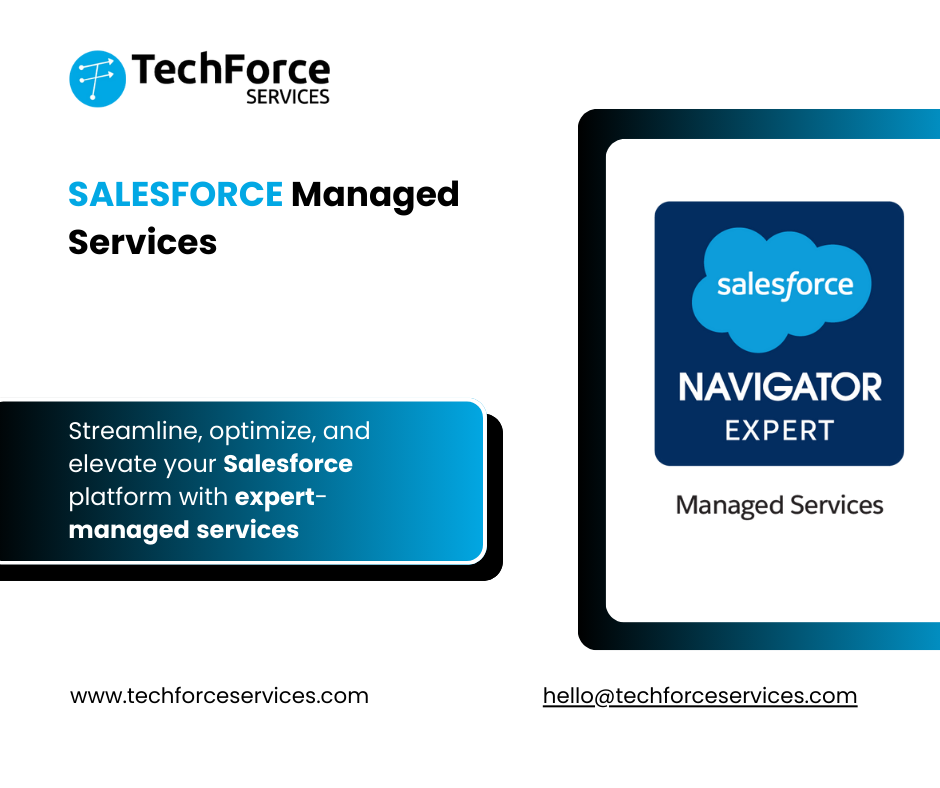Is Your Salesforce Ecosystem Holding You Back? Discover 5 Game-Changing DevOps Tools
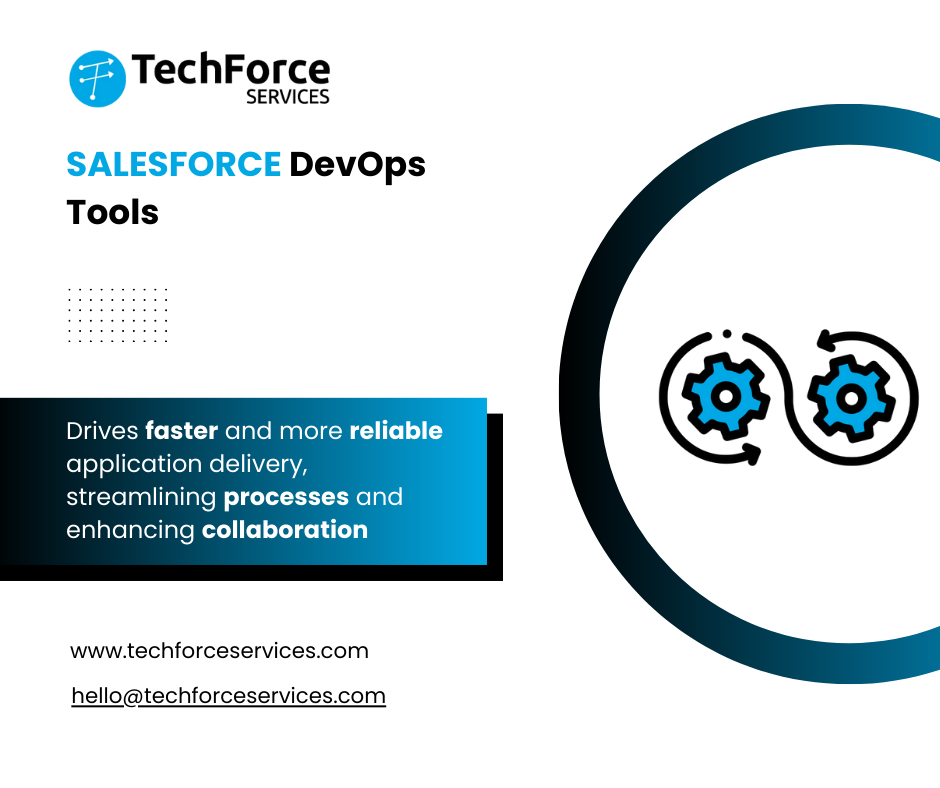
Strong 8k brings an ultra-HD IPTV experience to your living room and your pocket.
Introduction
Have you ever spent hours troubleshooting deployment errors or wished for a smoother workflow in your Salesforce ecosystem? You're not alone! Managing Salesforce development and operations can feel like juggling flaming swords—one wrong move, and chaos ensues.
This is where TechForce Services, experts in Salesforce services, step in. With their deep understanding of Salesforce DevOps Center and the Salesforce ecosystem, they empower businesses to optimize workflows and minimize errors. If you're looking for tools to make life easier, you’re in the right place. Let’s explore the top 5 Salesforce DevOps tools designed to maximize efficiency and reduce errors.
Why DevOps Tools Matter in the Salesforce Ecosystem
Salesforce is a dynamic platform with endless possibilities. However, without the right tools, even the most skilled developers can hit roadblocks. DevOps tools streamline the entire lifecycle of development, testing, and deployment while improving collaboration between teams.
Here’s a quick fact: Organizations using DevOps tools report 46x more frequent code deployments and 96x faster recovery times after incidents (source: DORA Report).
Now that we've set the stage, let’s dive into the must-have DevOps tools for Salesforce.
1. Salesforce DevOps Center
Why It’s a Game-Changer:
Salesforce DevOps Center is a native Salesforce tool that redefines the deployment process. It simplifies release management, integrates seamlessly with source control systems like Git, and ensures smoother collaboration across teams.
Top Features:
Intuitive user interface designed for admins and developers.
Integrated pipeline view for tracking changes.
Easy deployment of metadata changes.
Pro Tip: If you're transitioning from Change Sets, Salesforce DevOps Center will feel like upgrading from a flip phone to a smartphone.
2. Copado
Why It’s Popular:
Copado offers a robust end-to-end DevOps platform for Salesforce, making it one of the most trusted tools in the Salesforce ecosystem. It focuses on enhancing team collaboration and ensuring error-free deployments.
Top Features:
Drag-and-drop functionality for pipeline creation.
Built-in quality gates to prevent deployment errors.
Automated backups to avoid data loss.
Fun Fact: Companies using Copado report a 20% reduction in production errors, boosting team productivity.
3. Gearset
Why Developers Love It:
Gearset is known for its simplicity and powerful automation features. It provides real-time monitoring and alerts for deployments, ensuring you stay ahead of potential issues.
Top Features:
Detailed comparison tools for metadata and configurations.
One-click rollbacks for failed deployments.
Cross-org data deployment capabilities.
Quote to Remember:
"Gearset’s intuitive design makes DevOps accessible for every team member, not just developers." – Salesforce Community Review
4. AutoRABIT
Why It Stands Out:
AutoRABIT specializes in continuous integration and continuous deployment (CI/CD) tailored for Salesforce environments. Its automated workflows save countless hours and reduce manual intervention.
Top Features:
Comprehensive data backup and recovery.
Integrated code analysis tools.
Scalable for large enterprise environments.
Key Takeaway: AutoRABIT shines in complex Salesforce environments where automation and scalability are critical.
5. Flosum
Why It’s Worth Considering:
Flosum focuses on security and compliance, making it an excellent choice for industries like healthcare and finance that require strict data governance.
Top Features:
Native Salesforce architecture for seamless integration.
Built-in compliance tools for audit tracking.
Advanced release management options.
Bonus Tip: Flosum’s security-first approach ensures your Salesforce ecosystem remains compliant with regulations like GDPR.
Do’s and Don’ts of Using Salesforce DevOps Tools
Do’s
Choose tools that align with your team’s workflow. Every organization is unique, so pick a tool that complements your processes.
Invest time in training. The more comfortable your team is with the tool, the more benefits you'll reap.
Monitor and measure. Use analytics to track deployment success rates and pinpoint areas for improvement.
Don’ts
Don’t skip updates. DevOps tools are continuously improving. Keep your tools up to date to leverage the latest features.
Don’t rely solely on automation. While automation is powerful, always review critical deployments manually.
Don’t ignore feedback. Regularly gather input from your team to optimize tool usage.
Conclusion
Salesforce DevOps tools can revolutionize the way you manage development and operations, cutting down on errors and improving efficiency. From the versatile Salesforce DevOps Center to the security-focused Flosum, these tools cater to a wide range of needs in the Salesforce ecosystem.
Ready to take the next step? Visit TechForce Services to explore how their Salesforce services can streamline your workflows and empower your business. Allow TechForce Services, your go-to Salesforce specialists, to confidently guide you through the intricacies of the Salesforce ecosystem.
Stop juggling swords—start optimizing with the right tools today!
Note: IndiBlogHub features both user-submitted and editorial content. We do not verify third-party contributions. Read our Disclaimer and Privacy Policyfor details.



